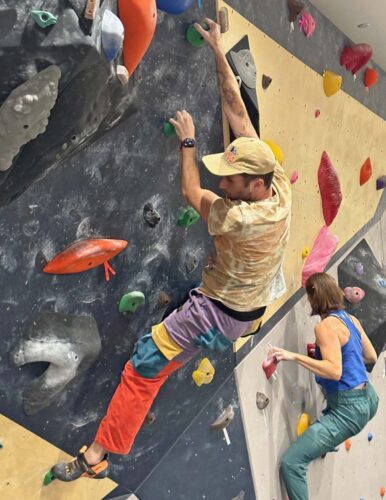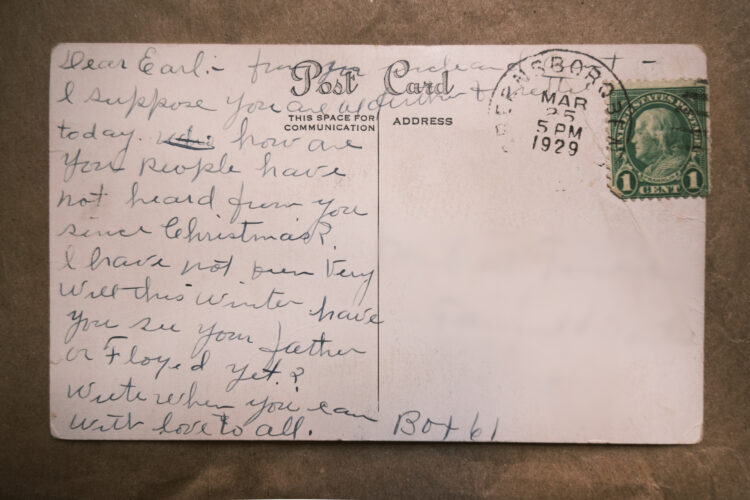ON THE SCENE: My four grandmothers
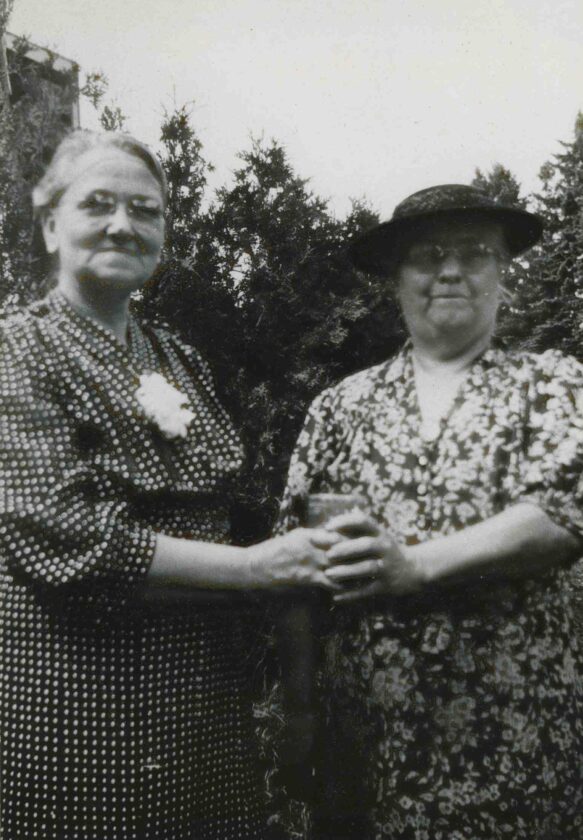
Grace Doty and Effie Preston Alford (Provided photo — Naj Wikiff)
Growing up in Lake Placid, I had four grandmothers: great-grandmother Effie Preston Alford “Gram”; her best friend, Grace Doty of Vermontville; Climena Alford Wikoff, “Grama”; and Grossmama, my mother’s mom, Else Schweitzer Gerstenberger, who lived most of the year in Shaker Heights, then Cleveland Heights, Ohio.
Each impacted my life in different ways, mainly because, in a practical sense, I had no grandfather. I barely knew my great-grandfather, Harvey “Harv” Alford, although one memorable fishing trip and his philosophy of life stuck with me always. He described it as his Indian (Mohawk) philosophy: The best way to cross a river is to cross it, the best way to climb a mountain is to climb it, and the best way to cross a river is to cross it. The corollary was, can’t ain’t in the dictionary, ain’t is; in other words, whatever it takes, cross that river, climb that mountain or chop that tree down.
I met my grandfather Rufus Wikoff only once; he was then in a hospital in Carmel, California, following a devastating stroke. This visit was made just before I began my freshman year at the Pratt Institute. Similarly, I remember meeting my Grosspapa, John Henry Gerstenberger, only once, when he came for a visit. He was a founder of the University Hospitals in Cleveland and the long-serving founding director of their Children’s Hospital, now known as Rainbow Children’s Hospital.
Effie Alford and Grace Doty were extraordinary cooks, who taught not only my grandmother Climena how to cook and put both the Alford Inn and the Mirror Lake Inn on the map and in people’s hearts as the places to dine, but coached such chefs as the gifted Woody Lester, who eventually took his talents from the Inn to the Grandview, and Fred Richards, who took over as chef Mirror Lake Inn following Lester.
Gram knew how to bake. Her pies and cookies were to die for. Her and Harv’s little house was located across from the 1932 Arena, thus a favorite place of mine to stop on the way home from school. When I was a freshman at Northwood, I met the legendary Jackrabbit Johansen at a cross-country ski race in the Laurentian Mountains of Quebec. He remembered Effie fondly and was shocked and pleased to learn from me that she was still alive. Johansen asked me to give her his best wishes, which I did, she then living in assisted living in Gabriels. I let her know that I’d likely see him again in a few weeks at another race in Canada.
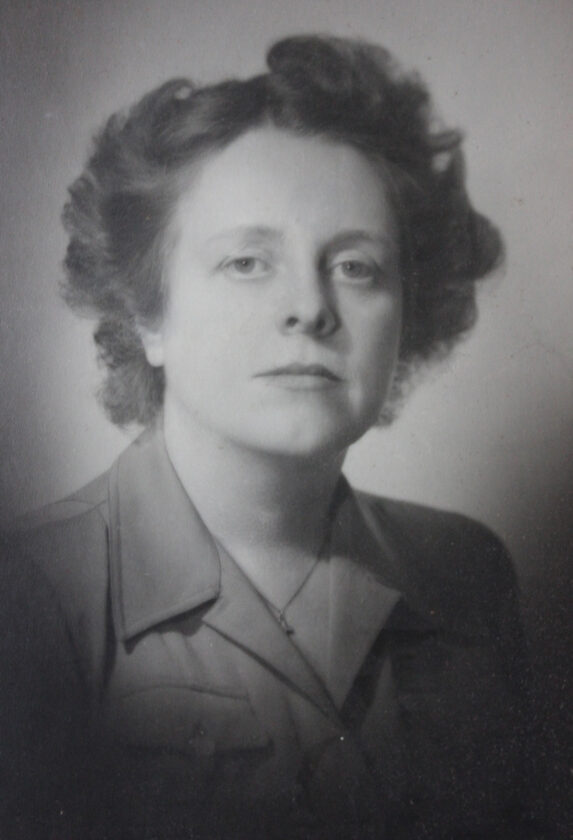
Climena Alford Wikoff (Provided photo — Naj Wikiff)
Effie, “Gram,” asked me to ask that “youngster” if he still steals pies, which he was known to do when she had set them out to cool. To be described as a youngster made Johansen’s day; he was then in his 80s and treated like an aging icon, as he was.
Grace Doty introduced cats and ducks into our lives. She brought us a small black female kitten. My mother had grown up with dachshunds, her parents’ favorite pets, so she wasn’t keen on owning a cat. She decided to keep the kitten in our basement until she could find it a home, but its sad meowing got to her heart, and the cat moved into our life with my brother Gerret naming her Kittymew. Within a couple of years, Kittymew treated us like we were her kittens, she watched out for my brothers and me, and, at one time, rode a large short-haired dog off the property after it had knocked me down. Kittymew leapt on the dog’s neck and tried to scratch its eyes out; it never came back.
Grace gave us three ducklings to raise. We were then living on Signal Hill. Gerret and I would take our ducks to the Mirror Lake Inn beach to swim with us, and bring them back home. Fun, though, was visiting Grace at her home in Vermontville. We’d go to church with her, visit the neighboring farm with all its animals, and, of course, enjoy the wonderful meals she prepared.
Grossmama, butterfly nets in hand, led Gerret and me on our early forays into nature. At the time, we were living in the twin houses of Swiss Hill, or to be exact, we owned the one nearest to Swiss Road, and Grossmama used the other as her summer home. Grossmama was a highly educated woman, a skilled decorative artist, and, back in Cleveland, very involved with the Cleveland Museum of Natural History, where she served on its board and as a volunteer member on several of its archaeological digs and other scientific investigations.
Grossmama taught us how to collect, mount, and preserve butterflies, moths and other insects. She knew the names of nearly all the plants and trees in nature, and made us blueberry pancakes every Sunday morning, using blueberries we had picked in season. Especially fun for the two young boys was that she taught us how to make catapults and tinfoil rockets using match heads as propellant. She taught us card games, board games like Parcheesi, and instilled in us a love of working on picture puzzles.
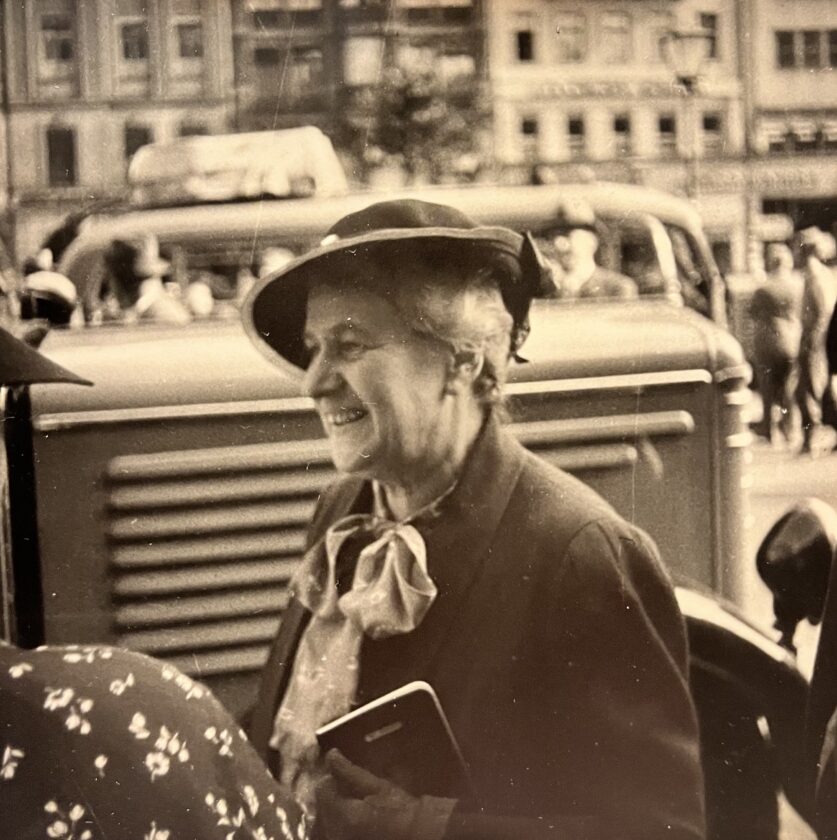
Else Schweitzer Gerstenberger (Provided photo — Naj Wikiff)
Grossmama inspired us to take on all sorts of chores and stage circus acts for tourists as a means of earning enough money to become members of the Natural History Museum. Our reward was a train trip from Lake Placid to Cleveland, allowing us to explore the museum and meet some of our cousins. When we traded our Swiss Road home for the Gyp Adams’ motel/funeral parlor on Wilmington Road, Grossmama moved with us. Thus, my adventures with her lasted through high school.
My grandmother, Climena, known to her friends as Cly and to us as Grama, taught us how to work in all aspects of running a hotel, especially for me in the kitchen. We started in the dining room, serving rolls, butter, and appetizers. As we got older, we shifted to washing dishes and cleaning the pots and pans for the cooks. Then, for me, it was onto the pantry, where I learned to bake, make flapjacks and salads, and prepare all the desserts. Gerret went back to the dining room as a waiter, which he preferred. I went from being in the pantry to being the breakfast cook, prepping the vegetables, and then working behind the range.
Other tasks at the Inn included the laundry, acting as a lifeguard for the beach, and mowing lawns. When I reached middle school age, Grama Cly would take me to New York City to see a play, visit one or more art museums, and buy me what she considered decent clothes, this from her favorite store, Sax Fifth Avenue. We took the train down from Albany, usually staying at the Taft or Roosevelt; Top of the Sixes was a favorite restaurant. Fun, though, for me was watching Avril Conway paint her murals at the Inn.
Grama Cly watched to see how the plated food looked before it was taken to the dining room, and then watched to see what came back when the waitresses and waiters brought it back to the dishwashers. Her summer staff of waitresses, which she housed in the “Jungle,” and the young skaters staying at the Inn swore she had eyes in the back of her head and that she never slept, as she was always there greeting them if they came back late at night or tried to sneak someone in their room.
Truth was, Grama Cly was always the first up and last to end the day working at the Inn. She led by example. If a guest arrived late, no matter how late, she’d cook them dinner. All four were great storytellers and modeled kindness to others.
(Naj Wikoff lives in Keene Valley and has been writing his column for the Lake Placid News since 2005.)

